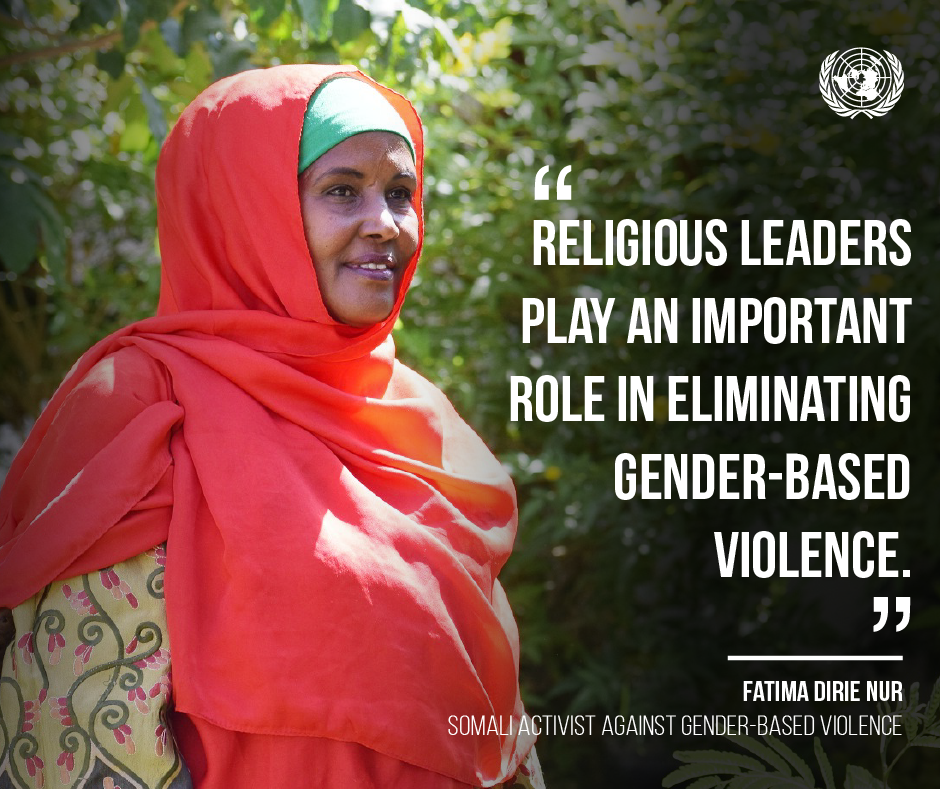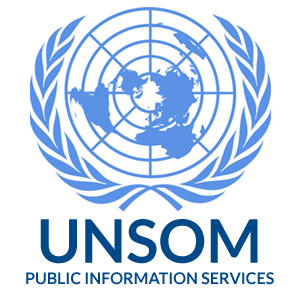#16Days2017: A dedicated activist speaks against gender-based violence in Puntland


 By UNSOM Public Information
By UNSOM Public Information
Fatima Dirie Nur is a woman with vision. She hopes that one day soon no woman or girl in the Puntland State of Somalia will suffer the anguish of being victims of gender-based violence. An activist and campaigner, Fatima spares no effort in advocating against rape, child marriage, and female genital mutilation.
“In my childhood, I was forced to undergo female genital mutilation, and don’t want other girls to go through the same pain. Enough is enough,” says Fatima. “It is a crime to allow girls to bleed to death, or later on maybe even die while giving birth, because of this evil practice.”
Fatima, now chairperson of the Samofal Development Organization, explains that the area of attention of their work changed over time.
“We used to focus on women and youth development, but in 2006 seven cases of rape were reported in Puntland’s main cities,” recalls Fatima. “This brutality had to stop, and I could not be silent about such crimes against women.”
Fatima notes that women and girls who are internally displaced are among the most vulnerable, mainly because of the precarious living conditions in the camps. She adds that, no matter who the perpetrators are, such acts cannot be tolerated.
“Most camps are in isolated areas, lacking proper shelter, access to water and electricity,” explains Fatima. “When women and girls must walk long distances to fetch water, they can easily become a target.”
Over the years, Fatima’s campaigns have been sometimes met with resistance. She has faced threats and negative rumors, but was encouraged by the many people she could reach, and the positive changes in people’s attitude. Despite the challenges, she has built strong partnerships in her fight to end violence against women and girls.
“Religious leaders play an important role in eliminating gender-based violence, their voices are strong and reach the masses” says Fatima, who recalls how they have recently contributed to the arrest and conviction of a serial rapist in Puntland’s rural areas.
“We also use social media to encourage discussions, which can bring about effective solutions and an end to gender-based violence. Boys and men are urged to speak also against these crimes,” says Fatima, referring to the #zerotolerance campaign.
Through a more recent initiative, Talowadaag, which means “share good advice” in Somali, Fatima aims at empowering women, politically and socially.
“Women representation in politics contributes to combating violence against women and girls. If victims have women advocating for them in political assemblies, they will dare report more cases,” adds Fatima.
The campaign “16 Days of Activism against Gender-Based Violence” is organized around the world annually from 25 November, marking the International Day for the Elimination of Violence against Women, to 10 December, the Human Rights Day. This year’s theme, “Leave no one behind: End violence against women”, reinforces the United Nations and global community’s commitment to a world free from violence against women and girls, while reaching the most underserved, marginalized or vulnerable.